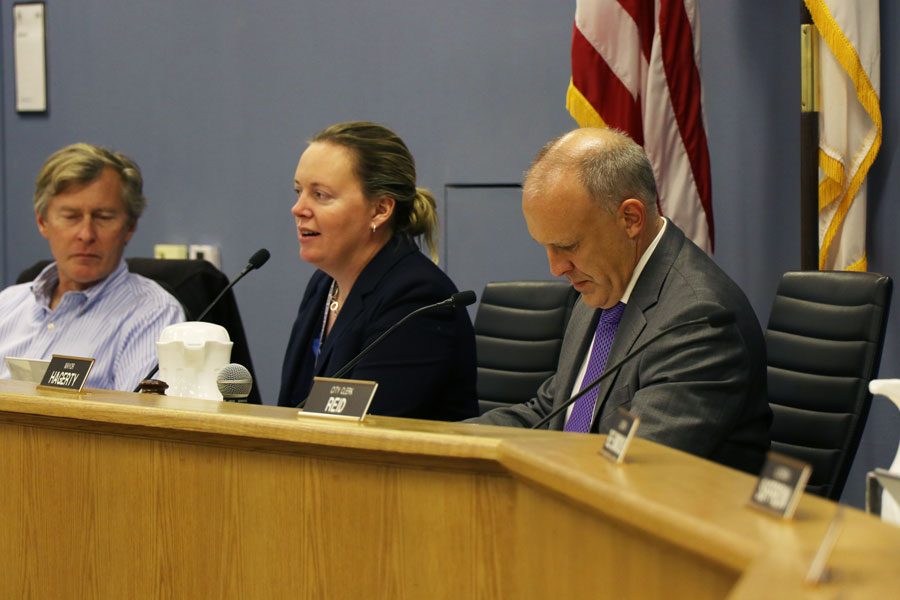Proposed budget creates separate fund for human services
Chris Vazquez/Daily Senior Staffer
Interim city manager Erika Storlie. At Monday’s City Council meeting, Storlie discussed the city’s new budget and long-term financial goals.
October 15, 2019
After last year’s deficit, aldermen praised city staff at Monday’s City Council meeting for the 2020-21 proposed budget, which avoids layoffs or cuts to services.
This year, the city is proposing a two-year budget, amounting to approximately $317 million, which will be broken up across 38 different funds. The largest amount is the city’s general fund, which has approximately $118 million in both expenses and revenues.
Implementing a two-year budget for the first time would allow for “long-range planning” for next year, said interim city manager Erika Storlie.
“My priority for the coming twelve months is to really focus on revenues and expenses over the next five years and have forecasted as to what those look like,” Storlie said.
Last year, community members spoke out against cuts to important social services including services for victims of domestic violence, and the restructuring of the Department of Health and Human Services in the city’s 2019 operating budget of $319 million.
She said the city can then think of some long-term solutions to adjust the property tax and move the needle on some of the bigger issues in Evanston.
While council members will adopt an ordinance and tax levy only for the 2020 budget, Storlie said they plan to roll over the decisions made this year into next year’s budget. The budget decisions made this year are largely setting the city up to achieve two-year budget goals, she said.
In one major proposed change, the city plans to move social services out of the general fund to a human services fund to serve the most vulnerable residents. Kate Lewis-Lakin, the city’s budget coordinator said this aims to set aside money for social services instead of having to compete with others in the general fund.
The proposed budget includes new revenue sources, including the recreational cannabis tax and the $1.5 million increase to the home rule sales tax adopted by the council on Sept. 23.
The recreational cannabis tax is projected to generate $250,000, according to city documents.
Ald. Robin Rue Simmons (5th) recommended council considersusing 100 percent of the recreational marijuana tax revenue to help fund the city’s reparation account solutions fund to counter opportunity gaps created by the legacies of racism in the city, an idea she got from Ald. Ann Rainey (8th).
“A month ago, we agreed as a council to work towards funding a local reparation and I don’t see where there’s any allowance made for that in this budget,” Rue Simmons said. “Considering the impact of over-policing and poor policing as it relates to marijuana use, specifically, and that being mostly damaging the black community, I think it’s an appropriate use of those funds as we generate revenue.”
The city has scheduled meetings for Oct. 26 and Oct. 28, where residents can discuss the planned budget, including the potential reparations fund.
Storlie acknowledged city staff for their work while operating with fewer resources. She said that after the cuts last year, the city wanted to be able to prevent further reductions.
“That level of anxiety people are operating under has been present and concerning,” Storlie said. “There was simply no room to cut any more personnel this year.”
Email: [email protected]
Twitter: @cassidyw_


